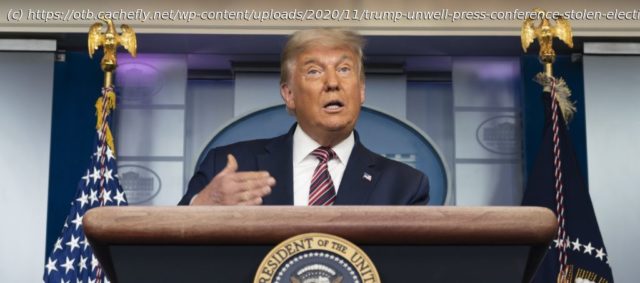As more details emerge about the documents he stole, defenders are falling away.
A somewhat-redacted copy of the affidavit used to justify the search of former President Donald Trump’s Mar-a-Lago home has been released and analysts think it’s quite damaging. More importantly, some unlikely sources seem to be persuaded that it’s a big deal.
At the NYT, Luke Broadwater, Katie Benner and Maggie Haberman take us “Inside the 20-Month Fight to Get Trump to Return Presidential Material.” It’s an interesting enough read but the headline gives away the plot: the US government spent more than a year and a half trying to get documents back from Trump before the search.
Their colleague Charlie Savage reports that the “Possibility of Obstruction Looms Over Trump After Thwarted Efforts to Recover Documents.”
When the Justice Department proposed redactions to the affidavit underlying the warrant used to search former President Donald J. Trump’s residence, prosecutors made clear that they feared the former president and his allies might take any opportunity to intimidate witnesses or otherwise illegally obstruct their investigation.
“The government has well-founded concerns that steps may be taken to frustrate or otherwise interfere with this investigation if facts in the affidavit were prematurely disclosed,” prosecutors said in the brief.
The 38-page affidavit, released on Friday, asserted that there was “probable cause to believe that evidence of obstruction will be found at” Mr. Trump’s Mar-a-Lago compound, indicating that prosecutors had evidence suggesting efforts to impede the recovery of government documents.
Since the release of the search warrant, which listed three criminal laws as the foundation of the investigation, one — the Espionage Act — has received the most attention. Discussion has largely focused on the spectacle of the F.B.I. finding documents marked as highly classified and Mr. Trump’s questionable claims that he had declassified everything held at his residence.
But by some measures, the crime of obstruction is a threat to Mr. Trump or his close associates that is as much or even more serious. The version investigators are using, known as Section 1519, was part of the Sarbanes-Oxley Act, a broad set of reforms enacted in 2002 after financial scandals at companies like Enron, Arthur Andersen and WorldCom.
The heavily redacted affidavit provides new details of the government’s efforts to retrieve and secure the material in Mr. Trump’s possession, highlighting how prosecutors may be pursuing a theory that the former president, his aides or both might have illegally obstructed an effort of well over a year to recover sensitive documents that do not belong to him.
To convict someone of obstruction, prosecutors need to prove two things: that a defendant knowingly concealed or destroyed documents, and that he did so to impede the official work of any federal agency or department. Section 1519’s maximum penalty is 20 years in prison, which is twice as long as the penalty under the Espionage Act.
Julie O’Sullivan, a Georgetown University law professor who specializes in white-collar crime, said the emerging timeline of the government’s repeatedly stymied attempts to retrieve all the documents, coupled with claims by Mr. Trump that he did nothing wrong because he had declassified all the documents in his possession, raised significant legal peril for him.
“He is making a mistake in believing that it matters whether it’s top secret or not,” she said. “He is essentially conceding that he knew he had them.” If so, she added, then not giving them back was “obstructing the return of these documents.”
His colleagues Julian E. Barnes and Mark Mazzetti (“Classified Material on Human Intelligence Sources Helped Trigger Alarm“) add:
Mr. Trump has a long history of treating classified information with a sloppiness few other presidents have exhibited. And the former president’s cavalier treatment of the nation’s secrets was on display in the affidavit underlying the warrant for the Mar-a-Lago search. The affidavit, released in redacted form on Friday, described classified documents being found in multiple locations around the Florida residence, a private club where both members and their guests mingle with the former president and his coterie of aides.






